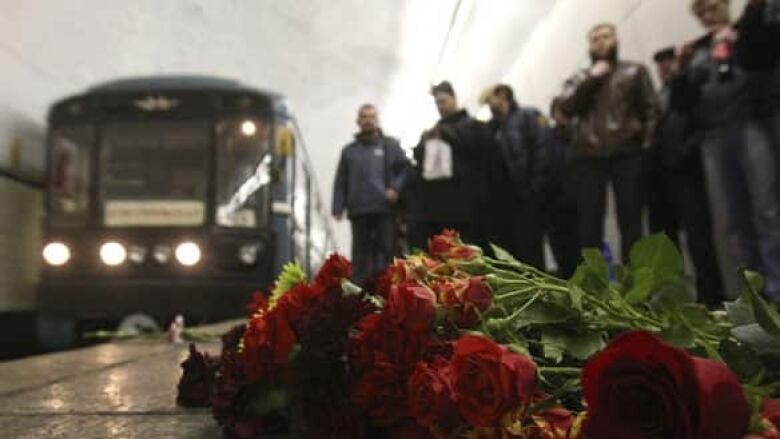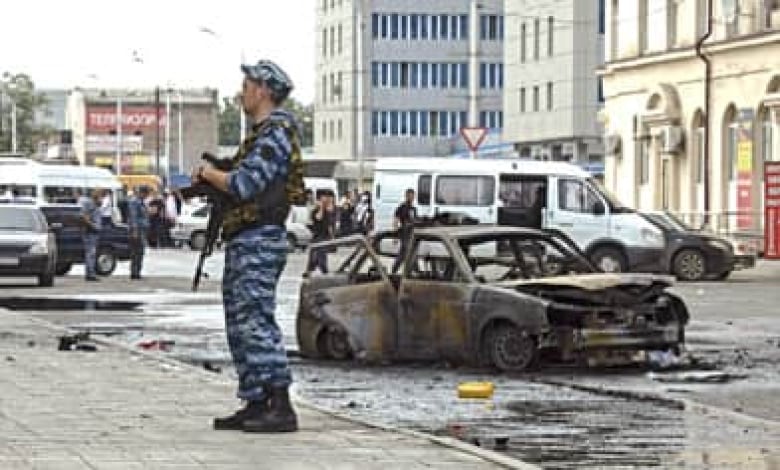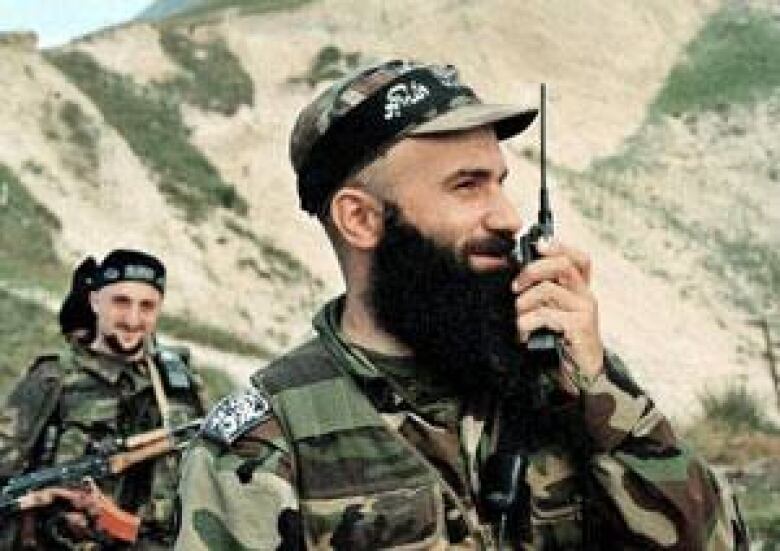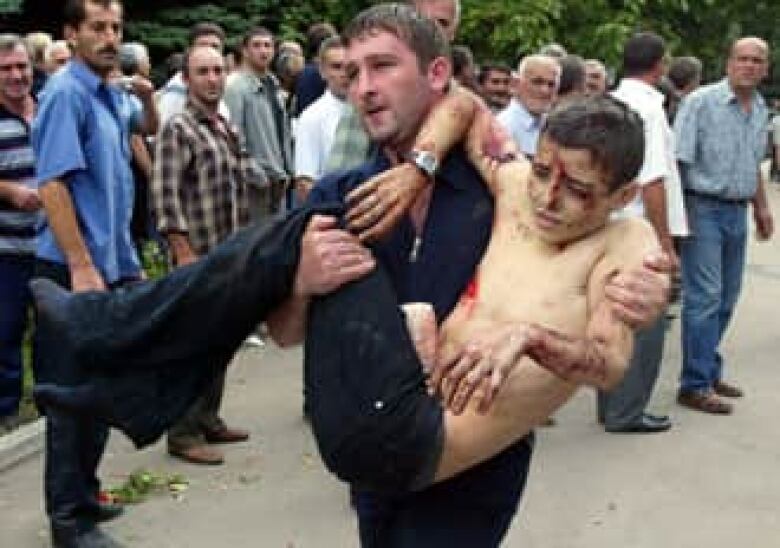The avenging Black Widows

When a suicide bomber detonatesan explosive vest, the bombers chest and torso are blown to bits, but typically the head remains intact.
That is why the Moscow police investigators who rushed to the scene of Monday's Moscow Metro attacks suspected the two bombers were young women from Russias Caucasus Mountains because oftheir facial bone structure and brown skin.
Within minutes Alexander Torshin, a powerful member of Russias Federation Council and head of its North Caucasus committee, blamed the attacks on the "Black Widows."
The Black Widowsare what Russian journalists call female Islamist suicide bombers who haveparticipated in more than 30 attacks that have killed about 900 people in Russia since July 2001, when Khava Barayeva and Luisa Magomadova rammed their explosives packed truck into a Russian military headquarters building in the Chechen village of Alkhan Yurt.

The Black Widows are the creation of notorious Chechen rebel military commander Shamil Basayev.
Baseyev was the mastermind behind the Beslan school massacre, a three-day hostage-taking at a school in North Ossetia in 2004 that left 334 hostages dead, 186 of them children. Baseyev was killed in 2006, a death federal authorities take credit for, although others claim Baseyev accidentally blew himself up.
Before his death, Basayev was keen to test his hunch that when the Russian authorities are on alert for potential terrorist attacks, a young woman in jeans or an older woman in a frock attracts less suspicion than a dark-skinned young Chechen man in a cheap jacket.
Basayev dubbed his battalion of suicide seekers Riyad us Saliheen, an Arabic reference from the Qur'an meaning Garden of the Righteous. It was composed of men and women, but it was the women who fascinated the Russian media.
From 2002 to 2004, his "shahidka" a Russian derivative of the Arabic word shahid, meaning female martyr staged high-profile attacks mostly against Russian civilians.
Baseyev hoped to bully the Russian public into realizing it was better to allow the Chechen separatists to negotiate their ancestral homeland out of the Russian Federation than to fight a perpetual bloody war a thousand kilometres away from Moscow.
In October 2002, 19 Black Widows wrapped in black mourning clothes and suicide vests accompanied about 20 Chechen men as they seized more than 900 hostages at Moscows Dubrovka Theatre.

Russian Special Forces commandos ended the siege by pumping a powerful gas into the theatre that put everyone to sleep. The commandos then executed the Black Widows with a single bullet between the eyes as they sat unconscious in their seats.
The following year, Black Widow suicide bombers attacked an open-air rock concert in Moscow, a commuter train in southern Russia and Moscows luxury National Hotel that sits across the street from the Kremlin.
In 2004, Black Widows brought down two Russian passenger jets, attacked Moscow Metros Rizhskaya station and participated in the Beslan school hostage taking.
In a study of 47 Black Widows, psychologists Anne Speckhard and Khapta Akhmedova attempted to profile the women and determine who they were and what motivated them.
The answer that emerged from interviews with their families was revenge.
Chechnya is just one of six Muslim-majority provinces straddling the Caucasus mountain range that marks Russias southern border. More than 90 ethnic groups live there. Most are Muslims that have more in common with Iran, which is 200 kilometres to the south, than they do with Russia.
What these mountain peoples have in common with each other is that they are clan-based societies. Their ancient clan values trump Russian civil law and even Islam, and revenge is a core clan value.
If an outsider wrongfully kills a clan member, it is the clans moral obligation to settle scores by killing the perpetrator or failing that, a member of his clan.
Speckhard and Akhmedova studied 47 Black Widows ranging in age from 15 to 38. The death of a brother, a father or the rape of a female relative at the hands of Russian soldiers had traumatized all of them. Some had been raped themselves.

Basayev disbanded the Riyad us Saliheen in 2004 following the international condemnation of the rebels after the Beslan School massacre. But after a six-year hiatus Russias counterintelligence agency, the FSB, believes the Riyad us Saliheen brigade has been revived.
Last year, a charismatic rebel commander calling himself Said Buryatsky bragged on the rebel website Kavkaz Center he was training new suicide bombers.
An ethnic Russian convert to Islam, Buryasky, born Alexander Tikhomirov, studied for several years in SaudiArabia. When he returned, he found much had changed in the Caucasus since Baseyevs death.
What had started as a battle for Chechen independence had spread to all six Muslim majority Russian provinces in the Caucasus. Moreover, the insurgency had been transformed by new hard-line Islamist leaders into a religious crusade.
A new leader, Dokka Umarov, emerged declaring the new goal was to separate all six Muslim majority provinces in the Russian Caucasus from the Russian Federation, and create a new Islamic state ruled by Sharia law.
Admired for his Saudi religious education Buryatsky quickly became Umarovs chief ideologist. He also became a valued military strategist.
In August 2009, a male suicide bomber drove a truck bomb into the headquarters of the federal police in Nazran, the capital of Ingushetia province. Twenty-six police officers were killed, and more than 100 officers and civilians were wounded. Buryatsky claimed credit.
At the time, the Federal Security Service (FSB) claimed Buryatsky had trained 30 new suicide bombers, many of them Black Widows.
The counterintelligence agency also believed that Buryatskyplanned the bombing of the Nevsky Express a high-speed luxury train that runs between Moscow and St. Petersburg. Twenty-seven passengers died in that attack.
The FSB hunted Buryatsky down and hewas killed in a raid on March 2 in Ingushetia.
But in the wake of Monday's Moscow Metro attacks, the FSB is investigating the possibility that the two female suicide bombers were Black Widows out to avenge his death.
On Tuesday, Russias Kommersant newspaper reported that the FSB believes that nine of Buryatskys 30recruits have already blown themselves up on suicide missions. The counterintelligence agency believes the other 21 are still at large, raising fears they are preparing for moreattacks on Moscow.
On Wednesday, two more suicide bombers blew themselves up in Dagestan, killing at least 12 people.












_(720p).jpg)


 OFFICIAL HD MUSIC VIDEO.jpg)
.jpg)



























































































